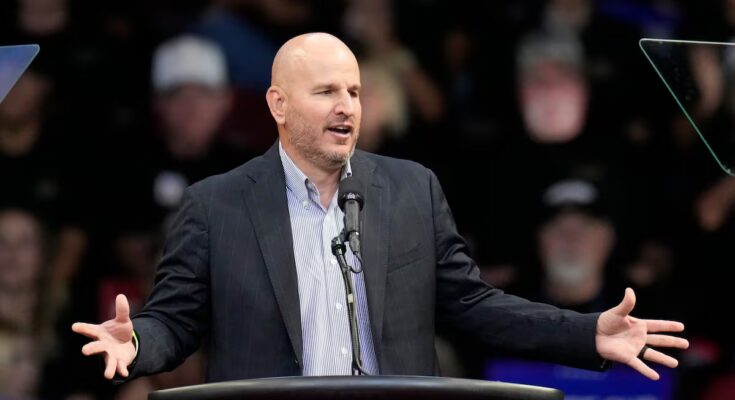This Friday, the government of Chile sent a note of protest to the United States over the recent statements of its new ambassador to the South American country, Brandon Judd. The American diplomat said he felt “very disappointed” by President Gabriel Boric’s criticism of his counterpart Donald Trump for his position on climate change and also assured that the White House will work with any leader that Chileans choose in the December 14 ballot, even if some governments are “easier to work with” due to their ideological affinity, interpreted as an allusion to the far-right candidate José Antonio Kast.
Chilean Foreign Minister Alberto van Klaveren stressed that, on the instruction of the Moneda Palace, a document was formally presented to the US chargé d’affaires, since Judd, although he has already been appointed ambassador, Boric has not yet received his credentials, as there are other countries who have been waiting longer. “It seems to us that the statements of the new US ambassador are inappropriate and inopportune,” said the Chilean Foreign Minister, adding that the diplomat’s position “represents an intervention in the internal affairs of our country and we have made this clear to him with this note of protest.”
Judd, a former U.S. Border Patrol agent between 1997 and 2023, was appointed ambassador to Chile on Oct. 7, arriving in Santiago 11 days ago. At a press conference this Thursday, the diplomat was consulted about the presidential elections, in which Kast and the official candidate and activist of the Communist Party Jeannette Jara, who represents the left, will compete. Although he avoided referring to his preferences, Judd indicated: “I want Chileans to decide, to be able to decide who their next president will be, and when you decide on this, you will say who you want me to be with, who you want me to work with, because I want to work with the best person possible.” And he added: “There are governments that are ideologically in line with us and it will be easier to work with them. But once again: this is not my decision, it is the Chileans’. And I wait to see what they decide.”
Boric’s statements were also addressed at the leaders’ summit on climate change, COP30, in Brazil, on November 7, where the Chilean president assured that these are “times in which voices are being raised that decide to deny or ignore the scientific evidence on the climate emergency” and added that, without going further, “the president of the United States in the last United Nations Assembly said that the climate crisis does not exist and that it is a lie”. In this regard, Judd expressed his disagreement because he believes that Washington has been at the forefront of environmental issues. “It’s always a disappointment when a head of state criticizes another country… This shows how relations have broken down and also puts more difficulties for the people, let’s say, the Chilean people.”
Him impasse The diplomacy comes at a time when all polls show Jara trailing Kast, who in this second half of the presidential race has shared on social networks that he has spoken with leaders such as Javier Milei, from Argentina, and Giorgia Meloni, from Italy. But this also happens in the midst of the Boric government’s nomination of former president Michelle Bachelet’s candidacy for the position of secretary of the United Nations.



